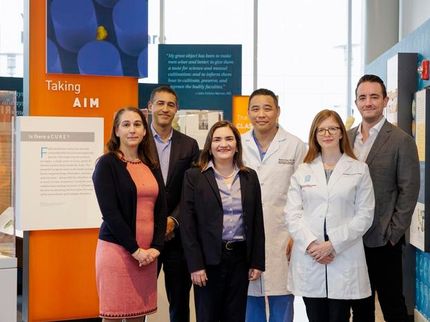Parsing the genome of a deadly brain tumor
The most comprehensive to-date genomic analysis of a cancer – the deadly brain tumor glioblastoma multiforme – shows previously unrecognized changes in genes and provides an overall view of the missteps in the pathways that govern the growth and behavior of cells, said members of The Cancer Genome Atlas Research Network in a report that appears in Nature.
"This was a big thrust for the public project," said Dr. Richard Gibbs, director of the Baylor College of Medicine Human Genome Sequencing Center, a member of the network and a co-author of the paper. "This answers the big question about whether the cancer genome project is worthwhile. The results show that it is — definitely." The BCM Center, the Genome Sequencing Center at Washington University School of Medicine in St. Louis, Missouri, and the Broad Institute of MIT and Harvard in Cambridge, Massachusetts led the effort that included many members from across the nation.
This interim analysis of 91 tumors and 623 genes provides important clues about how the disease originates and progresses in cells and how it eludes the effects of potent anti-cancer drugs and radiation, said Dr. David Wheeler, associate professor in the Genome Sequencing Center and a co-author of the report. It could provide researchers with clues about how to treat the disease. The Baylor Human Genome Sequencing Center was a major component in the effort to sequence the genes and identify mutations and changes that affected the ways cells react.
"Studies like this show the breadth of mutation across many genes," said Wheeler. "We can see the mutations in all the genes of each pathway that control growth, replication and death in the cancer cell. Researchers have never seen the whole landscape like this before, and it's providing many new insights into strategies to diagnose and treat cancer."
The ultimate goal of the project is to sequence the entire exome – that portion of the genetic blueprint that provides the code for proteins – of the tumor, said Wheeler. In fact, he said, the goal is to sequence genes in 500 brain cancer samples, but the network decided to publish preliminary results.
"When we pulled everything together with just 91 samples, the results were so interesting and important for treatment that we felt we should publish before the end of the project," he said.
The analysis identified some genes known to cause cancer but whose role in glioblastoma had been previously underestimated, he said. For example, the genes ERBB2 (known to be implicated in breast and other cancers) and NF1 (neurofibromatosis gene 1 involved in a variety of tumors) were both found to be frequently mutated in this brain tumor. Other genes that previously had no known role in glioblastoma such as PIK3R1, a gene involved in regulating the metabolic actions of insulin were also found mutated in a variety of tumors.
In addition, the analysis gave scientists a wide view of how cell pathways are altered during the initiation and growth of glioblastoma.
Most read news
Topics
Organizations
Other news from the department science

Get the life science industry in your inbox
By submitting this form you agree that LUMITOS AG will send you the newsletter(s) selected above by email. Your data will not be passed on to third parties. Your data will be stored and processed in accordance with our data protection regulations. LUMITOS may contact you by email for the purpose of advertising or market and opinion surveys. You can revoke your consent at any time without giving reasons to LUMITOS AG, Ernst-Augustin-Str. 2, 12489 Berlin, Germany or by e-mail at revoke@lumitos.com with effect for the future. In addition, each email contains a link to unsubscribe from the corresponding newsletter.
Most read news
More news from our other portals
Last viewed contents
Category:EC_3.2.1

Lambda Laboratory Instruments - Zürich, Switzerland




















































